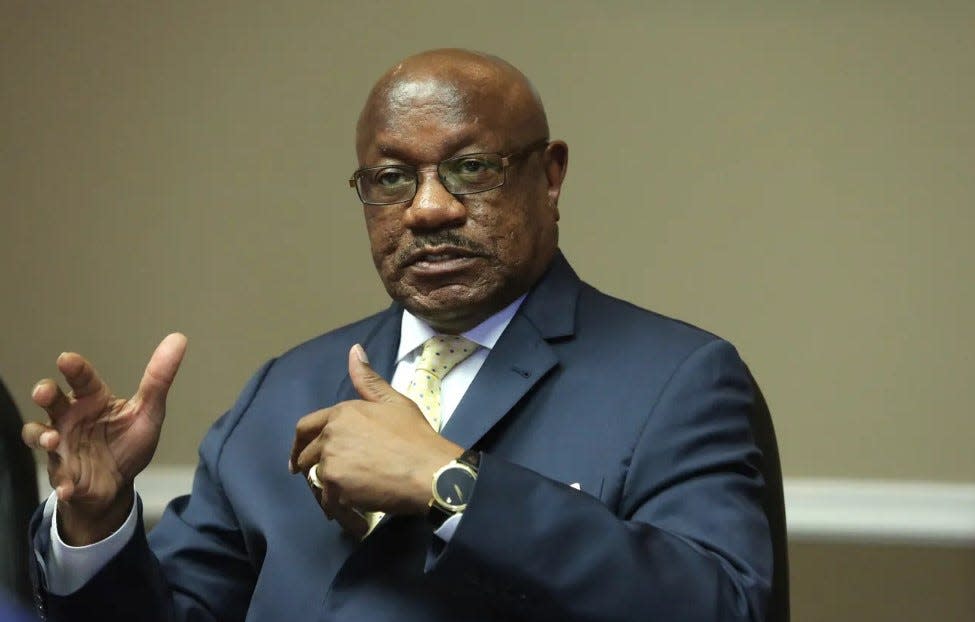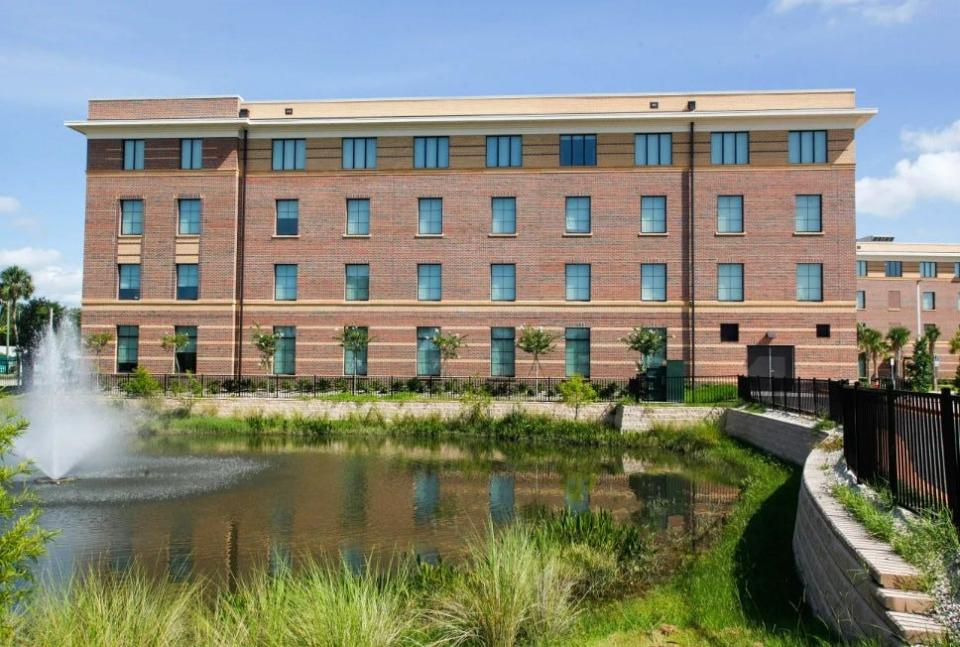Bethune-Cookman dismisses lawsuit that had alleged fraud against ex-president in dorm deal

Bethune-Cookman University quietly dropped a lawsuit last year against a former president and two of his lieutenants alleging they had defrauded the school of millions of dollars in a dorm deal that had threatened to shutter the 118-year-old institution.
The lawsuit's dismissal with prejudice − meaning it can't be refiled − has raised questions from some alumni.
They have long been expecting accountability for serious problems that arose from the financing of a residential hall built in 2016. The dorm, originally expected to cost $72 million, was later announced as an $84 million project before it was revealed that the financing and interest on a 40-year lease would have cost the school $306 million.
In 2021, B-CU Board Chair Belvin Perry announced the school was able to wriggle free from the weightier loan by working with the U.S. Department of Education and Rice Capitol to acquire $108 million in financing and pay off the other note. A $17 million annual commitment by the Florida Legislature has also helped the school's financial recovery.
B-CU lawsuit alleges fraud, bribery
In the 2018 lawsuit, Bethune-Cookman officials placed blame on Edison Jackson, the school's president between 2012 and 2017, and two of his top lieutenants: Hakim Lucas, then-vice president of institutional advancement, and Emmanuel Gonsalves, the former chief financial officer. B-CU dropped the case against them in July 2022.
Opinion: Bethune-Cookman alumni group questions future of the university after split
Letter to Board Unveiled: The case of B-CU's disappearing student center, $25M
Financial Solution: B-CU announces $108M loan resolving costly dorm dispute, providing delayed repairs
Both Lucas and Gonsalves had worked for Jackson in his previous tenure as president of Medgar Evers College of the City University of New York, where Jackson left in 2009 under a cloud of questions about mishandled finances. The B-CU lawsuit grouped the three with a nickname.
“The Jackson triad was reunited in Daytona,” the lawsuit states, adding that the “stage was set” for B-CU to suffer “unprecedented financial and managerial improprieties.”
As part of the same suit, B-CU also alleged two outside individuals and four companies were part of the scheme that "duped" the university into committing to far more debt than it could handle.
The school dismissed allegations against Darnell Dailey, TG Quantum LLC, Quantum Equity I LLC, and Quantum Realty Capital LLC, in 2021, while dropping its case against Mark Glover and his company Allied Strategies and Partnerships LLC, last November.
B-CU had alleged the dorm deal was "fraught with fraud," and that "hush bonuses" were paid by Lucas and Gonsalves with Jackson's approval to keep other employees from discussing the "ill-advised dorm project" and alerting the board to the higher costs.

During the process to secure bids for the dorm project, Lucas and Gonsalves "manipulated and mischaracterized the competing bids in ways that ensured the proposal made by Dailey and his affiliates would be successful," the original suit states. It called Jackson, Lucas and Gonsalves "financially corrupted," and alleged Florida bribery laws were broken.
The B-CU lawsuit also alleged Gonsalves gave a presentation on the Dailey/Quantum bid that misstated the details, including promising the financing would not affect the school's credit ratings. Jackson, meanwhile, allowed construction to start before the project had final approval, making it difficult to stop, the suit alleged.
Alumni 'at wit's end' over dropped lawsuit
Some B-CU graduates − already disturbed by a lawsuit filed by the university against the school's former alumni association − are raising questions about why the suit against the Jackson triad and others was dropped without a public announcement.
“The whole ordeal put the school in a big bind, and a lot of people were anxious to find out what happened and why it happened,” said Michael Shorter, vice president of the Mary McLeod Bethune National Alumni Association.
“(School officials) filed a lawsuit with everybody on edge to find out: Was there any misdealings? Did any of that take place?” Shorter said. “All of a sudden, the lawsuit is dropped and everybody is quiet now. There has to be a reason.”
Kevin Davis, a 1974 graduate from Jacksonville, said he's perplexed that the university, which levied such serious allegations against Jackson and the others, would simply drop the lawsuit without any explanation.
"The question is why. Nobody wants to answer that," Davis said. "We're at wit's end as to what's really going on at this university. Nobody seems to know."
Karen Parks, the university's executive director of marketing and communications, declined to comment on "current or prior litigation."
Shorter, a 1989 graduate from Lauderhill, explained why he's passionate about righting wrongs at B-CU: He's been a "staunch supporter" of Bethune-Cookman since the day he graduated. His wife and children also attended B-CU and he's been to every Homecoming since 1995.
"Bethune-Cookman basically saved my life," Shorter said. "I grew up in a rough neighborhood in Fort Lauderdale and many of the people I grew up with are in prison or dead."
The abandonment of the lawsuit leaves him with questions.
"Are there other people connected to the school that were involved in this and it was ready to come out? I don't know," he said. "Because of the non-transparency that's going on and has been for the last few years, a lot of us are in the dark. There's not a lot of answers being given and the only thing that happens is speculation."
Ronny Edwards Jr., an attorney for Gonsalves, said the university and Gonsalves "have mutually agreed to end the pending lawsuit between them, and to go their separate ways. Neither of these parties will have any further comment on the litigation, or about each other, except to wish each other well in their respective future endeavors."
Attorneys for Jackson and Lucas did not respond to requests for comment.
This article originally appeared on The Daytona Beach News-Journal: B-CU alumni unhappy with school's dismissal of suit vs. ex-president

